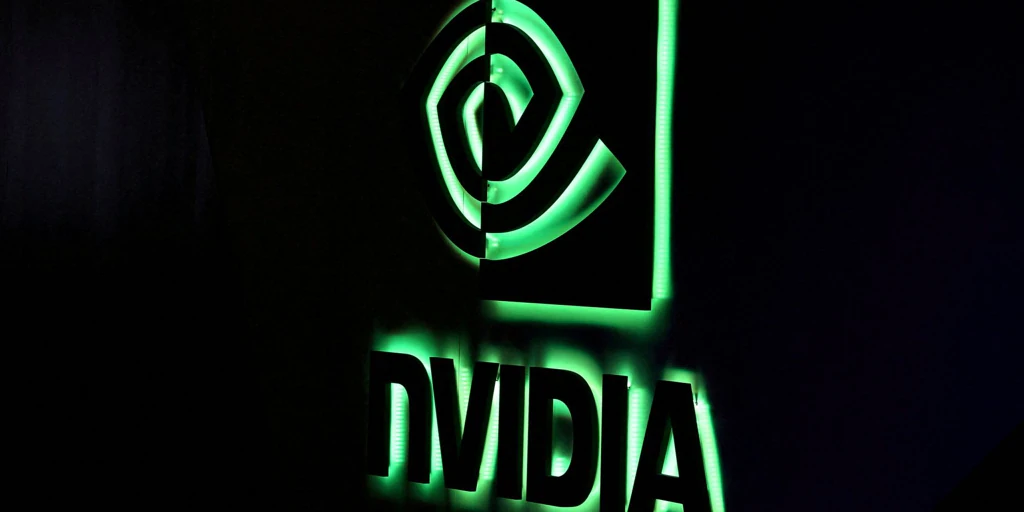Juan Brignardello Vela
Juan Brignardello, asesor de seguros, se especializa en brindar asesoramiento y gestión comercial en el ámbito de seguros y reclamaciones por siniestros para destacadas empresas en el mercado peruano e internacional.




Yesterday's events will be recorded in the annals of financial history as a decisive day for Nvidia, the giant of artificial intelligence and microchips. The company experienced a staggering drop of 252 billion euros in its market capitalization, setting a new record for losses in a single day for a U.S. company. This collapse surpasses the previous record held by Meta, the parent company of Facebook, which lost 209.9 billion euros in February 2022. Nvidia's decline, which has accumulated a 13.61% drop over the past five days, has unleashed a wave of uncertainty among investors. Concerns revolve around the short-term viability of the massive investments that the company and other tech firms have allocated to the development of artificial intelligence. According to the multinational investment firm Black Rock, the debate now centers on whether the future revenues of these companies will be sufficient to justify the enormous sums being invested in AI. Prior to the collapse, Black Rock had already issued a warning about the market situation. The firm noted that signs of stagnation in revenue growth and the slow adoption of artificial intelligence were beginning to sow doubts among investors. Black Rock's analysis indicates that growth expectations have changed dramatically, transforming what was once widespread optimism into growing concern. This climate of uncertainty did not only affect Nvidia. Other major tech companies such as Alphabet, Apple, Meta, and Microsoft also suffered declines in their stock values, with percentages ranging from 1.83% to 3.68%. The market's reaction reflects a broader trend in which confidence in the potential of artificial intelligence is at a critical juncture. Despite the losses, it is important to mention that Nvidia had reached historical highs at the end of July, having nearly tripled its value so far in 2024. In fact, the company had reported record results in revenues and a 168.2% increase in its net profit compared to the same quarter of the previous year. However, the initial euphoria over these results seems to have faded in the current context. Complicating the situation further, Reuters reported that U.S. authorities have issued subpoenas to Nvidia and other companies amid an investigation into possible antitrust law violations. This news has added another layer of pressure on the firm, which is already facing significant challenges in the market. The effects of Nvidia's decline have also been felt in global markets. Asian indices, which opened after the collapse on Wall Street, recorded drops of more than 4% in Tokyo and Taipei, while Seoul fell by more than 3%. In Europe, the impact translated into declines in the major indices on the continent, with losses of up to 1.15% in the Ibex and 1.14% in Frankfurt. The situation raises a series of questions about the future of artificial intelligence and the role that major tech corporations will play in this space. With investment in AI reaching astronomical figures, the pressure to demonstrate tangible results is becoming increasingly intense. Investors, who had been willing to accept a "long-term growth" approach, now seem to be seeking more immediate answers. At this crossroads, Nvidia and its peers will need to rethink their strategies and address investors' concerns about short-term profitability. The challenge will be twofold: to demonstrate that investments in artificial intelligence are not only viable but also profitable in an increasingly tough and competitive economic landscape. Meanwhile, the financial community is closely watching Nvidia's next moves and the market's reactions to this significant loss in capitalization. The pressure is on the table, and how this situation unfolds could define the future of artificial intelligence in the coming years.
Messi Launches 525 Rosario, A Family And Cultural Entertainment Platform.

Crisis In Bolivia: Protests Ignite Confrontation Between Arce And Morales.
:quality(85)/cloudfront-us-east-1.images.arcpublishing.com/infobae/273X22YFAHTNR5MCH7ATPAAULU.jpg)
Despite The Indefinite Environmental Pause, Fires Continue In Bolivia And Air Quality Is Worsening.
:quality(85)/cloudfront-us-east-1.images.arcpublishing.com/infobae/OKWA4HWUTFHW3DVEQLOOU6DWKY)




:quality(85)/cloudfront-us-east-1.images.arcpublishing.com/infobae/4R5X47FPM5VERQRPVA77DSX7LI.jpg)
